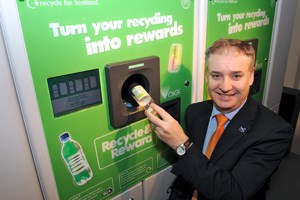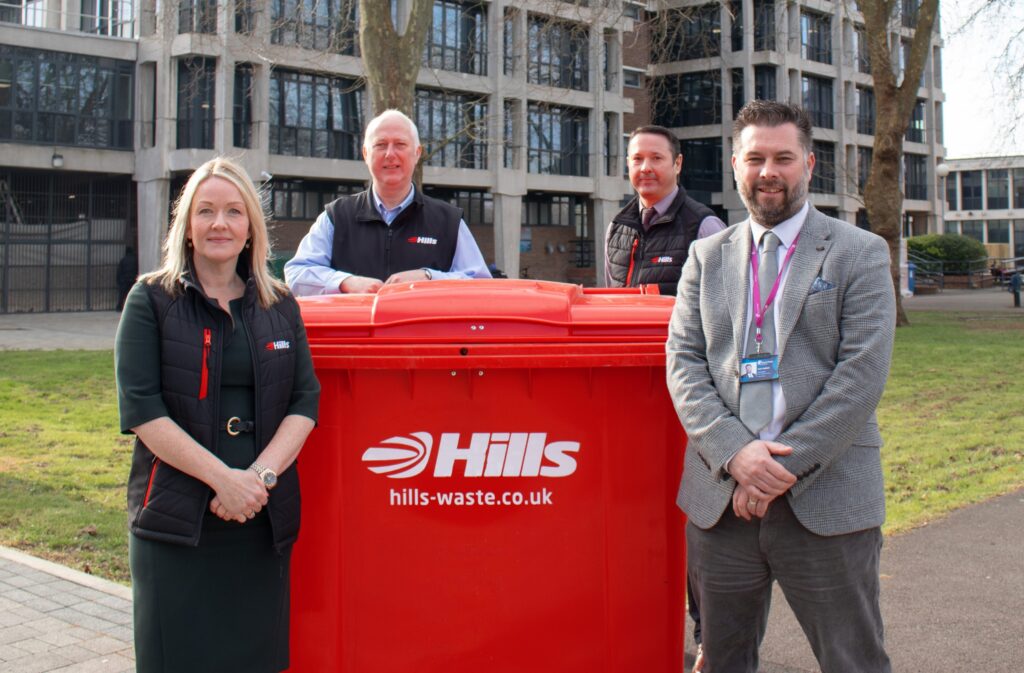Scotland’s Environment secretary Richard Lochhead will look at the feasibility of introducing a Deposit Return Scheme for aluminum, glass and plastic drinks containers, after witnessing similar programmes on a recent visit to Sweden.
Such a scheme could involve increasing the cost of bottles and cans to incorporate a monetary value that could be redeemed when the empty containers are returned.

The Swedish Deposit Return Scheme, initiated in 1984 for cans and extended in 1994 for plastic bottles, sees a small deposit added to the cost of drinks which is refunded when the container is returned.
Commenting on his visit on the last day of Scotlands Litter Week of Action last week, Mr Lochhead said: Scotland is such a beautiful country and it disappoints me when I see litter blighting our landscape, so I want to make this a land where littering is no longer acceptable.
The Deposit Return Scheme in Sweden is a great example of how a country has promoted the benefits of recycling into everyday life whilst also having a positive impact on litter. I was amazed at the cleanliness of the streets in Sweden and cannot recall seeing an item of litter throughout my trip.
It is a simple scheme which offers customers financial incentives to recycle glass bottles and cans when on the go, and it has clearly been successful in Sweden its akin to the popular system we had widely in Scotland some years ago, when many Scots took our glass bottles back to shops and got some change back in our pockets.
Trial schemes
‘It is a simple scheme which offers customers financial incentives to recycle glass bottles and cans when on the go, and it has clearly been successful in Sweden’
Richard Lochhead, Scottish Government environment secretary
Variations of the scheme, which helps Sweden achieve recycling rates of 85%, have also been implemented in Denmark and Norway. In February Scotland launched eight trial schemes to help assess whether incentives could reduce the amount of glass, aluminium and plastic (PET) drinks containers sent to landfill (see letsrecycle.com story).
Due to finish in September, the Recycle and Reward scheme has funded projects at institutes and businesses including the University of Dundee, IKEA and Network Rail. The incentives rolled out are examples of reverse vending, in which no deposit is paid but customers are offered vouchers or donations to a charity of their choice.
Zero Waste Scotland
Welcoming the announcement, Zero Waste Scotland director Iain Gulland, who in July outlined the findings of a similar deposit pilot scheme for Scotland established in June 2012, added: We very much welcome the news that the government wants to look at the feasibility of extending the deposit return scheme were running.
Related Links
Recycling is about keeping and re-using valuable materials and returning drinks containers is a simple step people could take to help make Scotland a zero waste society. It could also play a part in making our country litter-free.
Despite an estimated 22,000 tonnes of plastic drinks bottles going to landfill in Scotland every year, past calls for UK-based deposit schemes have been met with opposition from some packaging producers, who claim they are an expensive option for consumers and businesses. The potential cost barrier was highlighted in the June 2011 Waste Review (see letsrecycle.com story).








Subscribe for free